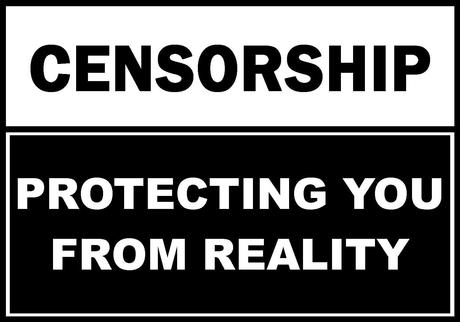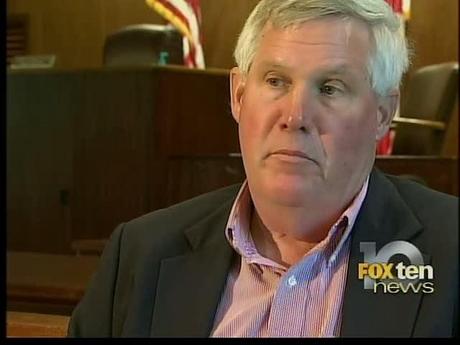 The U.S. Supreme Court started becoming a joke in the eyes of many Americans with its 2000 decision in Bush v. Gore, awarding the presidency to George W. Bush. The trend picked up steam with the court's dubious decisions on campaign finance (Citizens United v. FEC, 2010) and the Voting Rights Act (Shelby County v. Holder, 2013).
The U.S. Supreme Court started becoming a joke in the eyes of many Americans with its 2000 decision in Bush v. Gore, awarding the presidency to George W. Bush. The trend picked up steam with the court's dubious decisions on campaign finance (Citizens United v. FEC, 2010) and the Voting Rights Act (Shelby County v. Holder, 2013).It's easy to forget that the nation's high court once issued well-reasoned opinions, grounded in America's constitutional values. In fact, the U.S. Supreme Court once acted with stunning foresight. We were reminded of that fact upon opening our mail on Saturday to find a Petition for Contempt that Homewood attorney Rob Riley--the son of former GOP governor Bob Riley (2003-2011)--has filed in a lawsuit against my wife and me. (See contempt petition at the end of this post.)
Riley contends that my reports about his extramarital affair with lobbyist Liberty Duke are false and defamatory. Not content to litigate his claims on the merits, Riley persuaded specially appointed Judge Claud D. Neilson to issue a preliminary injunction that purports to force removal of posts on the Riley/Duke affair from Legal Schnauzer and forbid future reporting on the subject.
Apparently convinced that sunlight does not benefit his case, Riley also persuaded Neilson to seal the case file and forbid reporting on the matter. (I'm not joking about this; you can read the judge's order here.) Sources told us a couple of days ago that the case--styled Robert R. Riley Jr. and Liberty Duke v. Roger Shuler, Carol T. Shuler and Legal Schnauzer, Civil Action 2013-236 in Shelby County Circuit Court--does not appear in the public files via AlaCourt.gov.
I knew immediately that Neilson's actions on Rob Riley's behalf were wildly unlawful. But I needed to conduct some research to realize they violated about 230 years worth of black-letter law on free speech. And that process gave me renewed appreciation for a U.S. Supreme Court that has a proud history--even though its present is embarrassing.
Published reports indicate Rob Riley intends to run for the U.S. House seat being vacated by Spencer Bachus, and that almost certainly is driving his Legal Schnauzer lawsuit. After all, news about the affair--which led to an abortion and payment of hush money--is not likely to sit well with "family values" voters who tend to cast ballots in GOP primaries.
Rob Riley wants an injunction against my reporting, even though no court of law has found it to be defamatory. The U.S. Supreme Court of 1931 could see thugs like Rob Riley in the future and found that such actions constitute unlawful prior restraint. The court went even further--in a case styled Near v. Minnesota, 283 U.S. 697 (1931)--using the term "censorship" to describe prior restraint.
What exactly is Rob Riley up to? Let's consider these words from the Petition for Contempt that Riley doesn't want you to see:
Civil contempt is the "willful, continuing failure or refusal of any person to comply with a court's lawful writ, subpoena, process, order, rule or command that by its nature is still capable of being complied with. . . . "
The Respondents' [my wife and me] above-described non-compliance with TRO and the Preliminary Injunction constitutes on-going civil, constructive contempt. Respondents' on-going contempt not only is an affront to this Court's clear orders, it causes on-going injury to Petitioners [Riley and Liberty Duke] through the continued publication of false, defamatory, and libelous statements.
The key word in the above section, of course, is "lawful." And 230 years of U.S. law shows Neilson's efforts to stifle a free press are unlawful. Riley's petition is a thinly veiled attempt to threaten my wife and me with jail for practicing journalism--the publishing of information that has not been found by any court to be defamatory.

Judge Claud Neilson
In Near, the U.S. Supreme Court saw that kind of thuggery coming and wrote the following:That passage describes exactly what Rob Riley is trying to pull--he wants to suppress a free press, with the threat of a contempt finding that is punishable by imprisonment. The U.S. Supreme Court in Near found "this is of the essence of censorship."When a newspaper or periodical is found to be "malicious, scandalous and defamatory," and is suppressed as such, resumption of publication is punishable as a contempt of court by fine or imprisonment. Thus, where a newspaper or periodical has been suppressed because of the circulation of charges against public officers of official misconduct, it would seem to be clear that the renewal of the publication of such charges would constitute a contempt and that the judgment would lay a permanent restraint upon the publisher, to escape which he must satisfy the court as to the character of a new publication. Whether he would be permitted again to publish matter deemed to be derogatory to the same or other public officers would depend upon the court's ruling.
It was unlawful in 1931, and it's unlawful in 2013--no matter how badly Rob Riley wants to replace Spencer Bachus in Congress.
Rob Riley Contempt by Roger Shuler